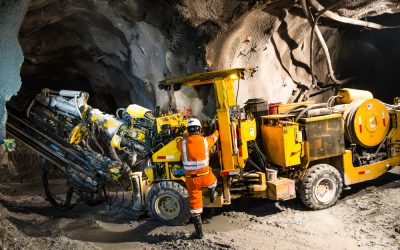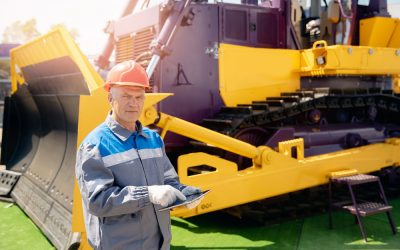- Wet and dry hire meaning
- Key differences between the two types of hire
- Which scenarios are ideal for either
- FAQs
Wet hire and dry hire cater to distinct needs and situations. Contact the HDD Solutions experts for the best advice on your equipment hire.
What Is Dry Hire and Wet Hire?
Dry hire refers to the hiring of equipment and machinery, whilst using your own skilled personnel to operate it.
Wet hire refers to the hiring of equipment, machinery and the operator to perform the service.
Key Differences: Dry Hire vs Wet Hire in Australia
Operator Responsibility
This is the most significant difference, as a professional operator is included in the wet hire, whereas the dry hire applies only to machinery rental.
Cost Structure
Given wet hire includes product rental and service, costs are usually quoted in hourly or daily rates. Prices are typically higher for wet services, as you’re not just paying for the service, but also a portion of the inherent insurance, training and certification. In contrast, dry hire quotes will be lower as you’re only paying for the equipment rental. You will, however, need to factor in your own operational and insurance costs.
Flexibility and Control
Dry hire gives you significantly more flexibility – the opportunity to ‘own your schedule’. Your team can coordinate to ensure that the equipment seamlessly enters the existing workflow. In contrast, wet hire is often influenced by the rental company’s schedule and procedures.
Training and Certification Requirements
Wet hiring will include a fully-licensed and qualified operator as part of the rental. If you’re dry hiring, you’ll need to ensure your operator has the appropriate licence, certification and training for handling the equipment. HDD Solutions can steer you in the right direction here.
Wet Hire vs Dry Hire – What’s Best for Different Scenarios?
Certain situations will lend themselves better to one type of hire versus the other. Let’s consider the various scenarios:
Operational Scenario |
Dry vs Wet Hire |
| Experienced in-house teams with appropriate machinery operation licenses, qualifications and training | Dry hire – why pay additional operational fees when you already have the staff on hand? |
| Long-term equipment rental | Dry hire – more economical over a longer hire period. |
| Need to adhere to strict operational timelines and procedures | Dry hire – integrating equipment-hire only into your operational streams is more straightforward and seamless than wet hire. |
| Extreme safety considerations or specialist equipment skills required | Wet hire – the onus is on the rental company to provide an operator with the precise skills, experience and licenses. |
| Limited resources | If you don’t have the appropriately trained and experienced personnel in your team, wet hire can plug the gap. |
Choose HDD Solutions for the Best Dry Hire in Australia
HDD Solutions has been delivering outstanding dry hire equipment rental solutions to our clients for over 30 years. Our Wangara workshop maintains all machinery in tip-top condition, with fully qualified specialist diesel fitters and technicians on hand for servicing and maintenance. Although we work closely with Caterpillar, Sandvik, Atlas Copco and Normet underground equipment, we have the experience and skills to handle any brand of specialist equipment.
Contact our team for premium equipment hire that won’t let you down.
FAQs
Should I Choose Wet Hire or Dry Hire for My Project?
It depends on the nature of your project. If it’s a short-term hire or you don’t have adequately trained and licensed operators in-house, wet hiring might be best for you. If it’s a longer-term project, you don’t have much operational flexibility, but you do have licensed operators already on your books; dry hiring is likely the best option.
How Much Does Wet Hire Cost Compared to Dry Hire?
Purely looking at the machinery rental component, dry hiring is more cost-effective. However, you need to factor in operations and insurance. Wet hire means you will pay the rental company extra for someone insured and licensed to operate the machinery; dry hire means you will cover these costs yourself.
What Happens If Equipment Breaks Down During Hire?
If you’re hiring from HDD Solutions, this is highly unlikely. We maintain all machinery in mint condition. However, if something were to occur, our specialist technicians can provide prompt assistance.




